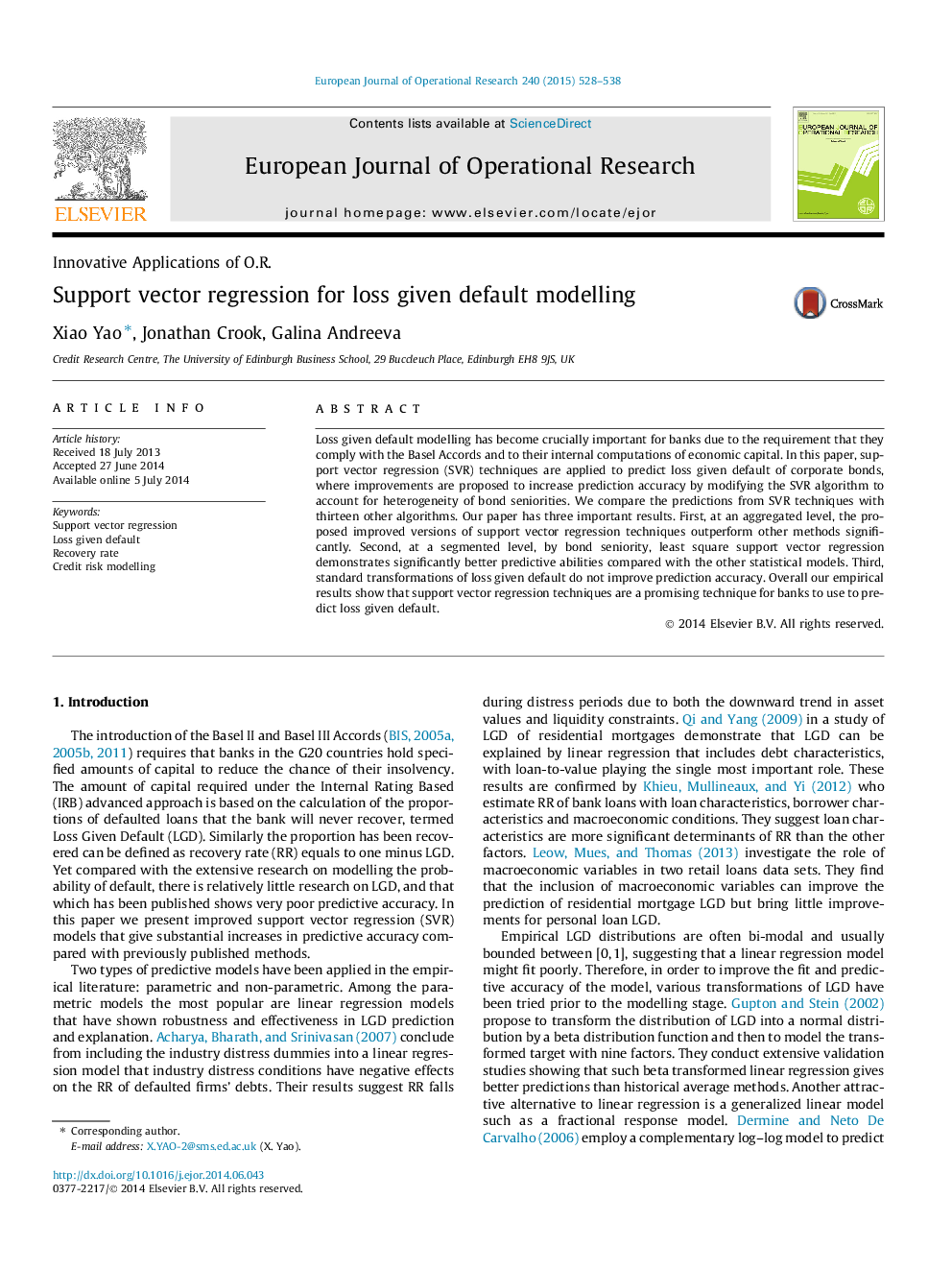| Article ID | Journal | Published Year | Pages | File Type |
|---|---|---|---|---|
| 479762 | European Journal of Operational Research | 2015 | 11 Pages |
•New support vector regression (SVR) techniques are applied to recovery rates of corporate bonds.•The proposed techniques outperform other methods significantly.•We modify the SVR algorithm to account for heterogeneity of bond seniorities.•Transformation of recovery rates does not improve the prediction accuracy.•Improved SVR models capture the features of each segment better than segmented ones.
Loss given default modelling has become crucially important for banks due to the requirement that they comply with the Basel Accords and to their internal computations of economic capital. In this paper, support vector regression (SVR) techniques are applied to predict loss given default of corporate bonds, where improvements are proposed to increase prediction accuracy by modifying the SVR algorithm to account for heterogeneity of bond seniorities. We compare the predictions from SVR techniques with thirteen other algorithms. Our paper has three important results. First, at an aggregated level, the proposed improved versions of support vector regression techniques outperform other methods significantly. Second, at a segmented level, by bond seniority, least square support vector regression demonstrates significantly better predictive abilities compared with the other statistical models. Third, standard transformations of loss given default do not improve prediction accuracy. Overall our empirical results show that support vector regression techniques are a promising technique for banks to use to predict loss given default.
